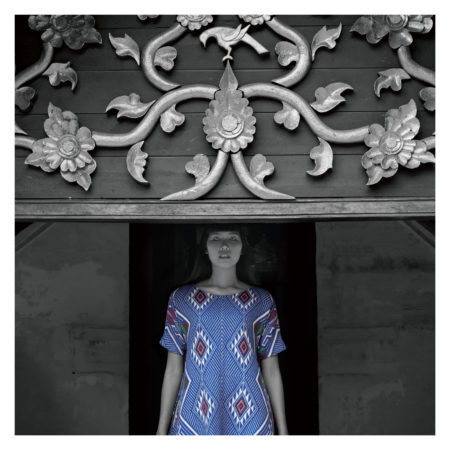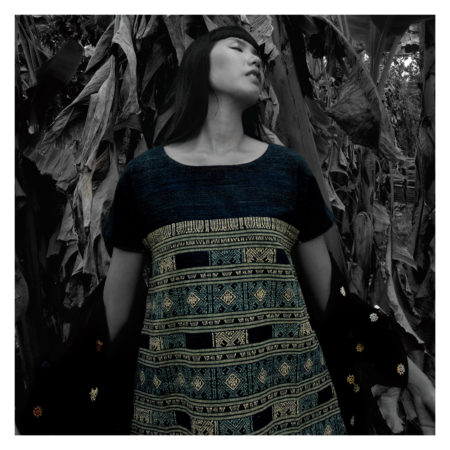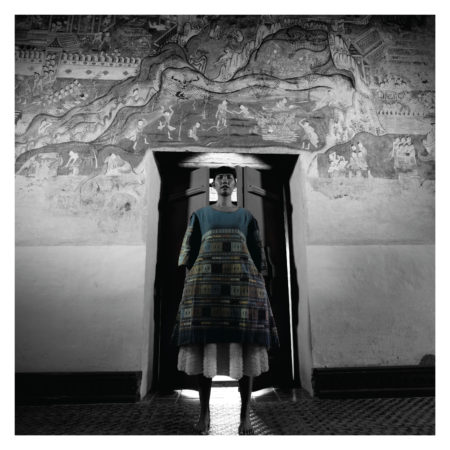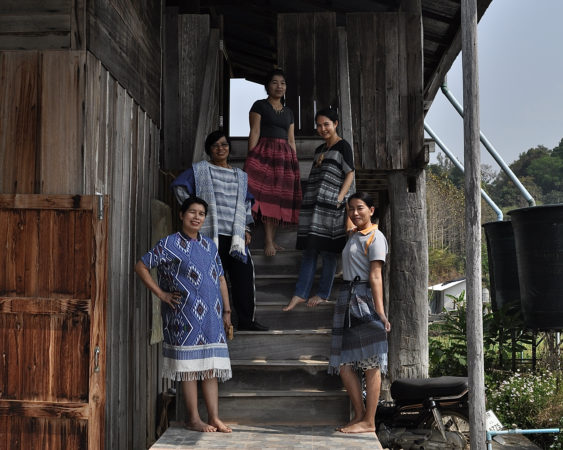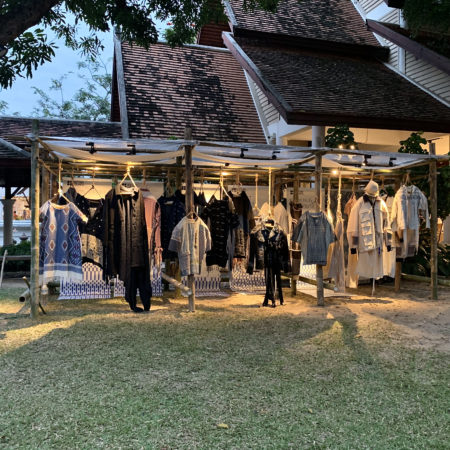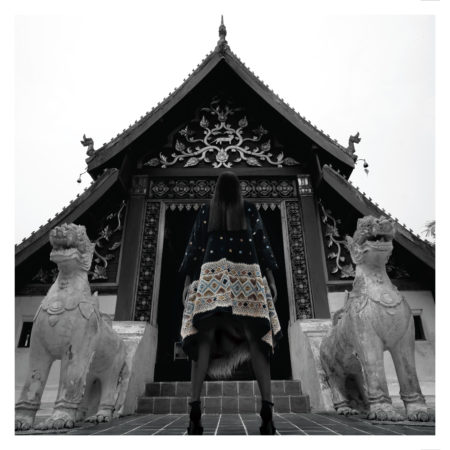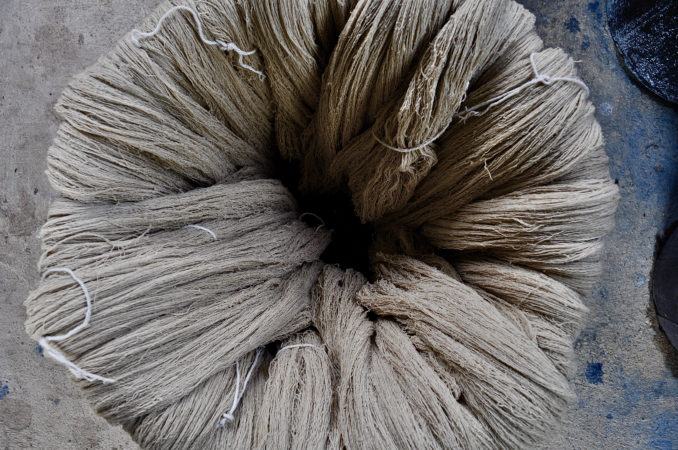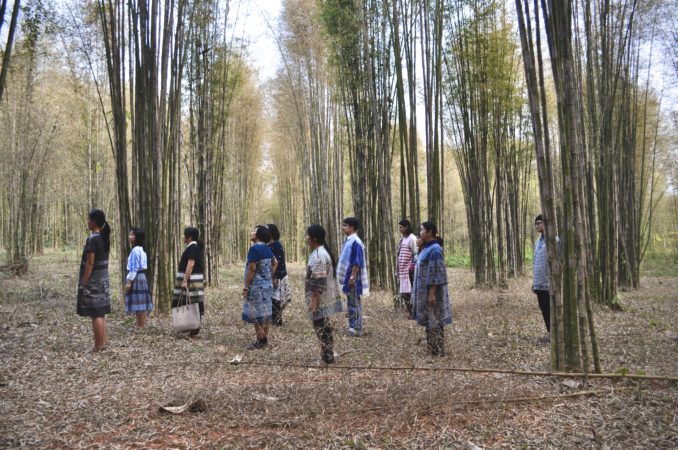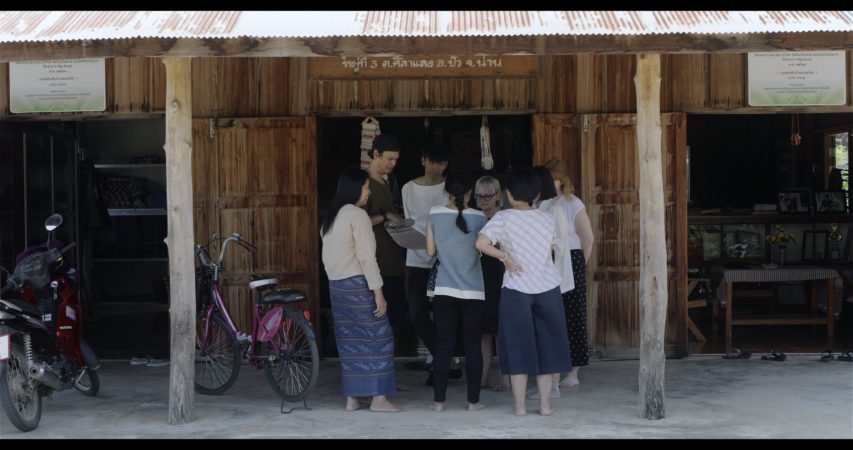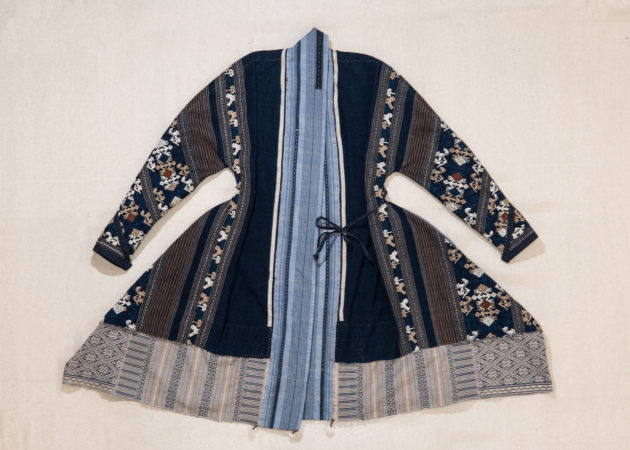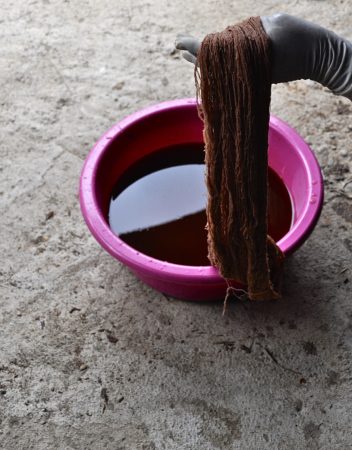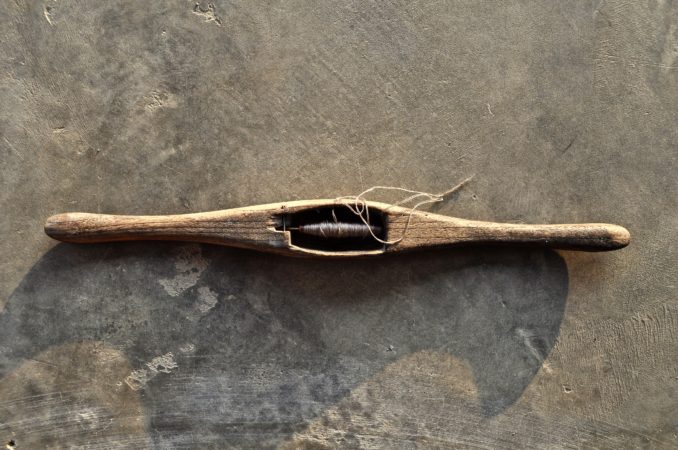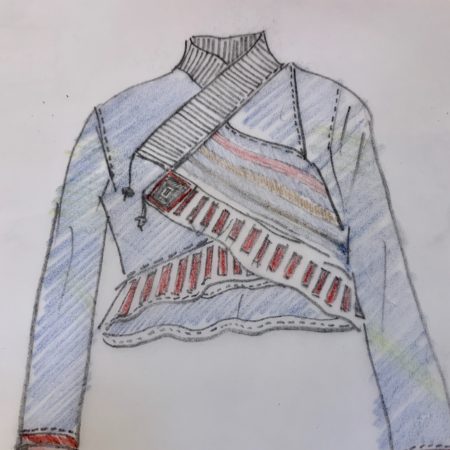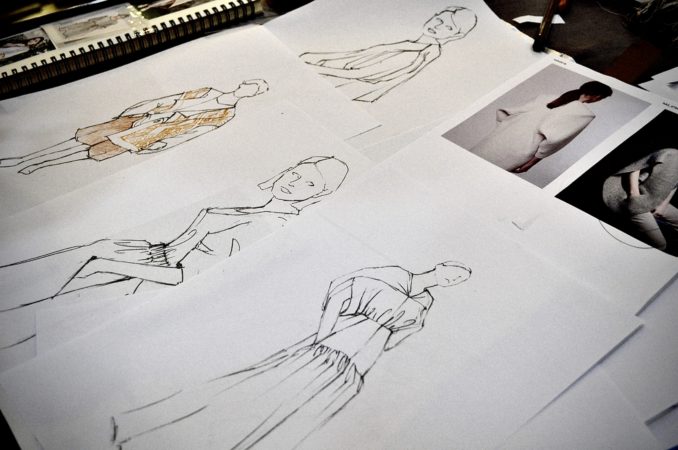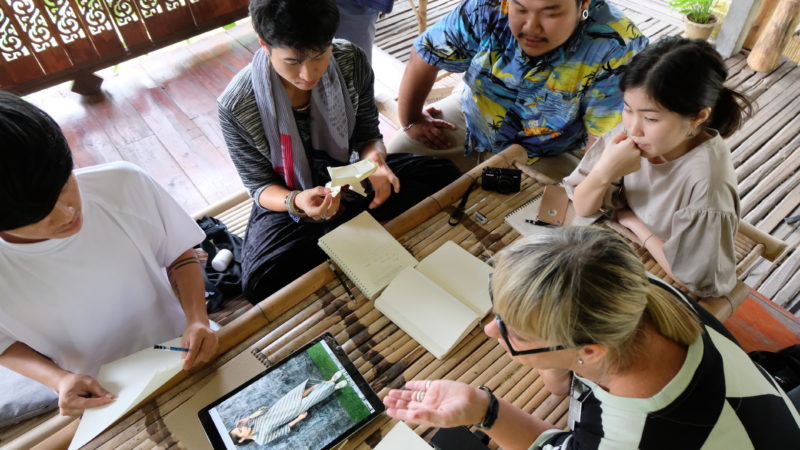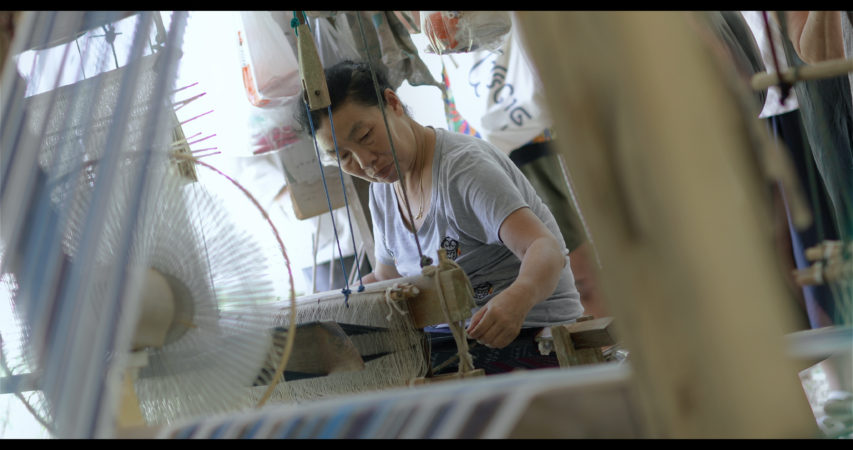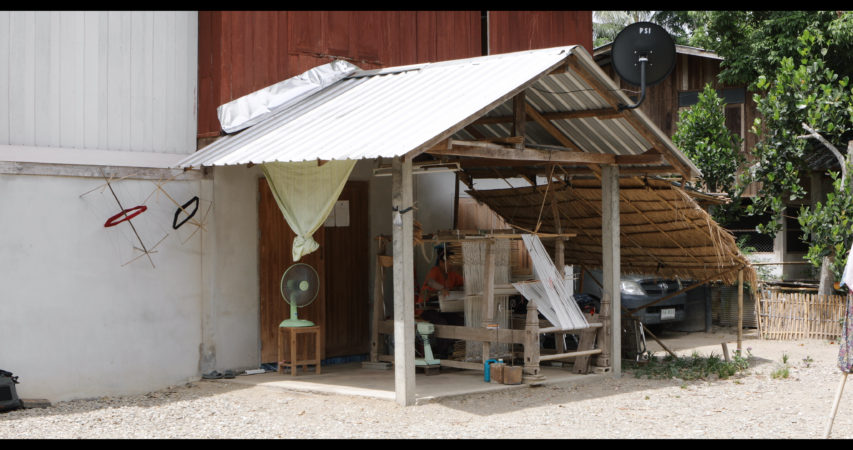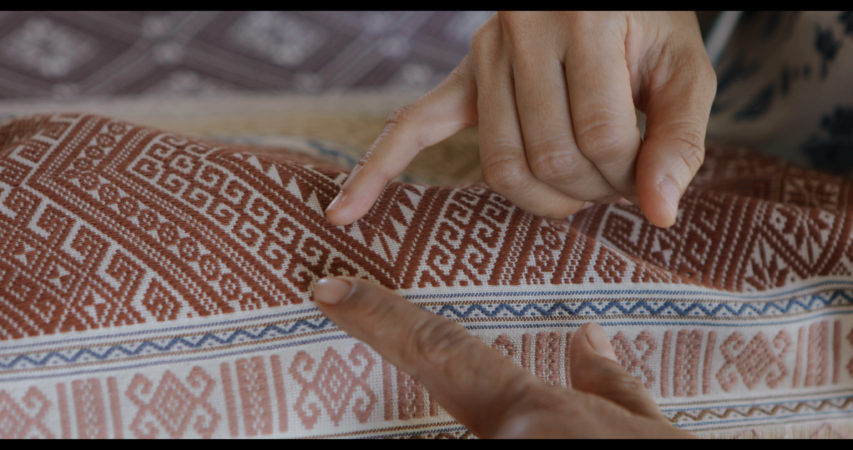The Tai Lue Project
Alison Welsh
The Tai Lue Project responds to the imperative to recognise and act on the threat to the intangible cultural heritage of traditional craft communities, as the effects of mass production seep into village life. It asks the question, how can contemporary fashion design act as a vehicle for re-vitalising the market for hand-woven textiles?
This project forms part of a 3-year cultural initiative between the UK and Thailand, the British Council’s Crafting Futures programme. Welsh worked in collaboration with the British Council on the Tai Lue Project, which developed methods of empowering female weavers in Nan Province, Thailand, enabling the women to realise the creative and business potential of their handloomed textiles. The project investigated methods of equipping the weavers with knowledge in design thinking, and new methods of integrating their cultural identity into their cloth. A programme of intensive and extensive participatory design workshops was initiated, which ran intermittently over a three-year period. Through daily meetings and practical workshops with a specific focus, such as design awareness, pattern cutting and natural dyeing, the weavers’ design thinking gradually evolved. The research revealed the need to re-think the weavers’ product promotion, to create new commercially viable garments, and to ensure that their business model maximised the economic potential of their environmentally friendly hand-dyed fabrics.
Collaborative Partners
The British Council
Chiang Mai University
Rhode Island School of Design
Outputs
Crafting Futures: The Tai Lue Project
Morrell, D. Welsh, A. (2020) Crafting Futures: The Tai Lue Project. (Film) Jakarta Fashion Week
Welsh, A. Chadprajong-Smith, J. (2019) The Tai Lue Project: embodying a cultural identity through cloth. International Foundation of Fashion Technology Institutes. Conference. Manchester. England.
http://fashioncolloquium.artez.nl
Welsh, A. Chadprajong-Smith, J. (2019) The Tai Lue Project Embodying a Cultural Identity Within Cloth. Bunka Gakuen University. Tokyo. Japan.
Welsh, A. Chadprajong-Smith, J. (2018) (Exhibition) The Tai Lue Project. Chiang Mai Design Week. Thailand.
Welsh, A. Chadprajong-Smith, J. (2017) Tai Lue Weaving: cultural exchange. 12th Fae Gaem Mai’s Lanna. Ethnic Exhibition. Chang Mai Convention Centre. Thailand.
Talks
Welsh, A. (2018) Handwoven co-creating clothes in India and Thailand.
Invited Speaker at the Textile Society, Antique & Vintage Fair. Manchester 15th April.
Welsh, A. (2018) Speaker. Crafts: What is critical?
Textiles Society Conference. The Hostry. Norwich Cathedral. 4th November.
http://www.textilesociety.org.uk/events/event-details.php?textile-event=903
Welsh, A. (2018) Chiang Mai Design Week
Weaving the future whilst treasuring the past: The Tai Lue Project. 10th December.
https://chiangmaidesignweek.com/en/programmes/british-council
Welsh, A. (2020) Chester Beatty Museum. Dublin.
Handweaving: The Tai Lue Project 27 February
https://chesterbeatty.ie/assets/uploads/2019/12/Chester-Beatty-Whats-On-Jan-Apr-2020.pdf
Press
The Future is Craft. An interview with Alison Welsh. (20th November 2018)
https://readthecloud.co/crafting-alison-welsh-en/
Weaving Futures. An Interview with Phaeo Khamphanuch the leader of Ban Hea weaving
community talks about the Tai Lue Project. The Cloud (19th December 2018)
https://readthecloud.co/phaeo-phafai-en
‘Most importantly, the objective is to help weavers become free thinking and able to create new designs without limitation.’
Interview with Phaeo Phafai, Ban Hea. The Cloud (2018)
Thailand Today NBTWorld: Crafting Futures global program by the British Council.
16th January 2020
https://www.youtube.com/watch?v=bAG_kS3A0jE&feature=youtu.be
Impact
The Tai Lue Project promoted a sustained engagement with weaving villages in Nan Province, Thailand, many of which were also on the brink of abandoning their cultural heritage, having adopted chemical dyes and synthetic yarns without great commercial success. The project re-introduced eco-friendly practices into the cotton growing, spinning, dyeing, weaving and garment construction stages of the Tai Lue weaving tradition and led to the co-design and co-production of new garment ranges using handwoven Tai Lue fabrics. Welsh and Chadprajong-Smith worked closely with the leaders of 3 community enterprises representing women in Tai Lue province. Workshops explored both hard and soft skills, including pattern cutting, garment construction, design and colour workshops and organic dyeing techniques. The project also brought in young Thai designers and entrepreneurs to collaborate in the creation and marketing of new textile products. The workshops attracted participants, who commented on how the workshops had changed their practice. Thanom Teekawong, a farmer, weaver and Head of Ban Donchai Weaving Community Enterprise confirmed that ‘There is for sure opportunity. The entire group has benefited. They got an opportunity to upgrade their skills, design process, shop and display arrangement. We also got to go on study trips. We learnt pattern making. We have learnt so many things’
Funding
British Council, Crafting Futures funding
Research Led Training
Manchester Fashion Institute, Fashion Design & Technology:
Level 6 Fashion Collaboration Manifesto
Level 6 Fashion Cultures 3
Level 5 Illustration Master Class
Manchester Fashion Institute – MA/MSc Fashion and Business. Perform

